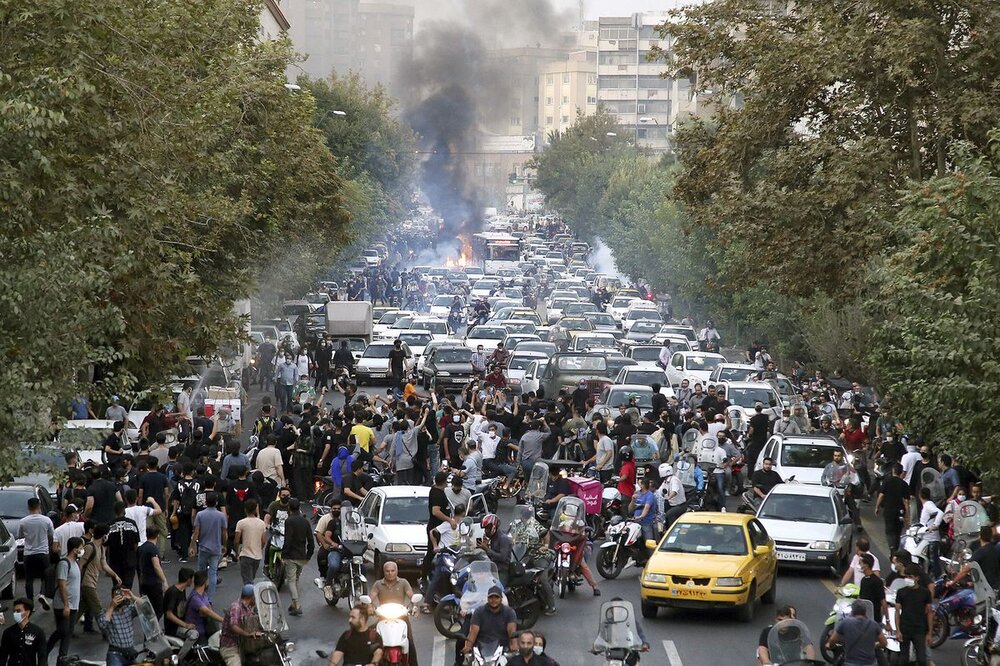Tehran summons German and British envoys

TEHRAN- The Iranian Foreign Ministry has summoned the German and British ambassadors to protest Berlin and London’s reactions to the execution of a rioter, who had injured a security personnel with knife and blocked a street in Tehran.
Britain imposed fresh sanctions on Tehran for the execution, a move that prompted the Iranian Foreign Ministry to call Ambassador Simon Shercliff on Saturday.
In a statement the Foreign Ministry strongly denounced the British government and media for continuing to support “terrorism” and “unrest” in Iran as well as their interference in internal affairs of Iran.
The ministry also expressed the Islamic Republic's categorical opposition to Britain's unlawful sanctions against a number of Iranian citizens.
He cautioned Shercliff that attempts by Britain and certain London-based media to stir up more unrest in Iran would be futile and just fuel the Iranian people's animosity against the European nation's anti-Tehran initiatives.
The Islamic Republic reserves the right to retaliate against the new sanctions, the British envoy was informed.
Britain announced sanctions against 10 Iranian officials on Friday, the largest package of sanctions ever brought against an individual.
“German diplomat informed that Berlin itself does not tolerate unruly behavior”
On Thursday, the German government "strongly denounced" Iran's execution of the rioter and questioned the Islamic Republic's legal reaction to the disturbances. Germany also summoned the Iranian ambassador to Berlin in response to the execution.
The remarks coupled with the summoning prompted the Iranian ministry to call German ambassador Hans-Udo Muzel on Friday.
Iran expressed its vehement protest at Berlin's inappropriate interference in the internal affairs of the Islamic Republic.
The German ambassador was also informed that Berlin would regard security as a redline and did not accept unruly behavior, while taking disingenuous positions about the Islamic Republic's legitimate fight against terrorism and violence.
The envoy was cautioned that it was "intensely lamentable" that Germany adopts a "selective and dual" approach in a way that it views subversive actions as "good for others, but harmful for themselves."
Germany itself has arrested 25 people in raids across the country on suspicion of plotting to overthrow the government. The group of far-right and ex-military figures are said to have prepared for a "Day X" to storm the Reichstag parliament building and seize power.
The Iranian Ministry also referred to Germany's "dismal record" with regard to the Iranian people.
During Iraq's 1980-88 war against the Islamic Republic, the European country supplied chemical weapons to Saddam Hussein's army, and it has also collaborated with the U.S. unlawful sanctions against the Iranian people, according to the statement.
Iranian Foreign Minister Hossein Amir Abdollahian criticized Germany for its "hypocritical and deceitful" approach on the situation in Iran in a tweet on Friday.
He said that confrontation with terrorism, violence, and hate speech is clearly a global obligation.
“Although Germany regards such scourges as off limits for itself, it encourages the same evil phenomena in Iran while undercutting the country's justifiable efforts to combat such measures,” Amir Abdollahian tweeted.
After the unfortunate death of a young woman called Mahsa Amini while in police detention in September, riot and violence, supported by foreign governments, broke out in certain cities in Iran.
Western media outlets and officials took up on the terrible situation quickly, and without offering any compelling proof, they began asserting that the woman had been "murdered" by police.
Iran promptly made public the CCTV footage showing the young woman fainting at the police station before being taken to the hospital. In the meantime, Iranian officials looked into the event and came to the conclusion that Amini's death was brought on by a chronic disease rather than suspected physical abuse.
The Iranian Interior Ministry said earlier this month that the West has been waging a hybrid war against the Islamic Republic to undermine national unity and obstruct economic development.
The government also stated that 200 people had already died as a result of the unrest, pinning the blame on separatist and terrorist organizations.
